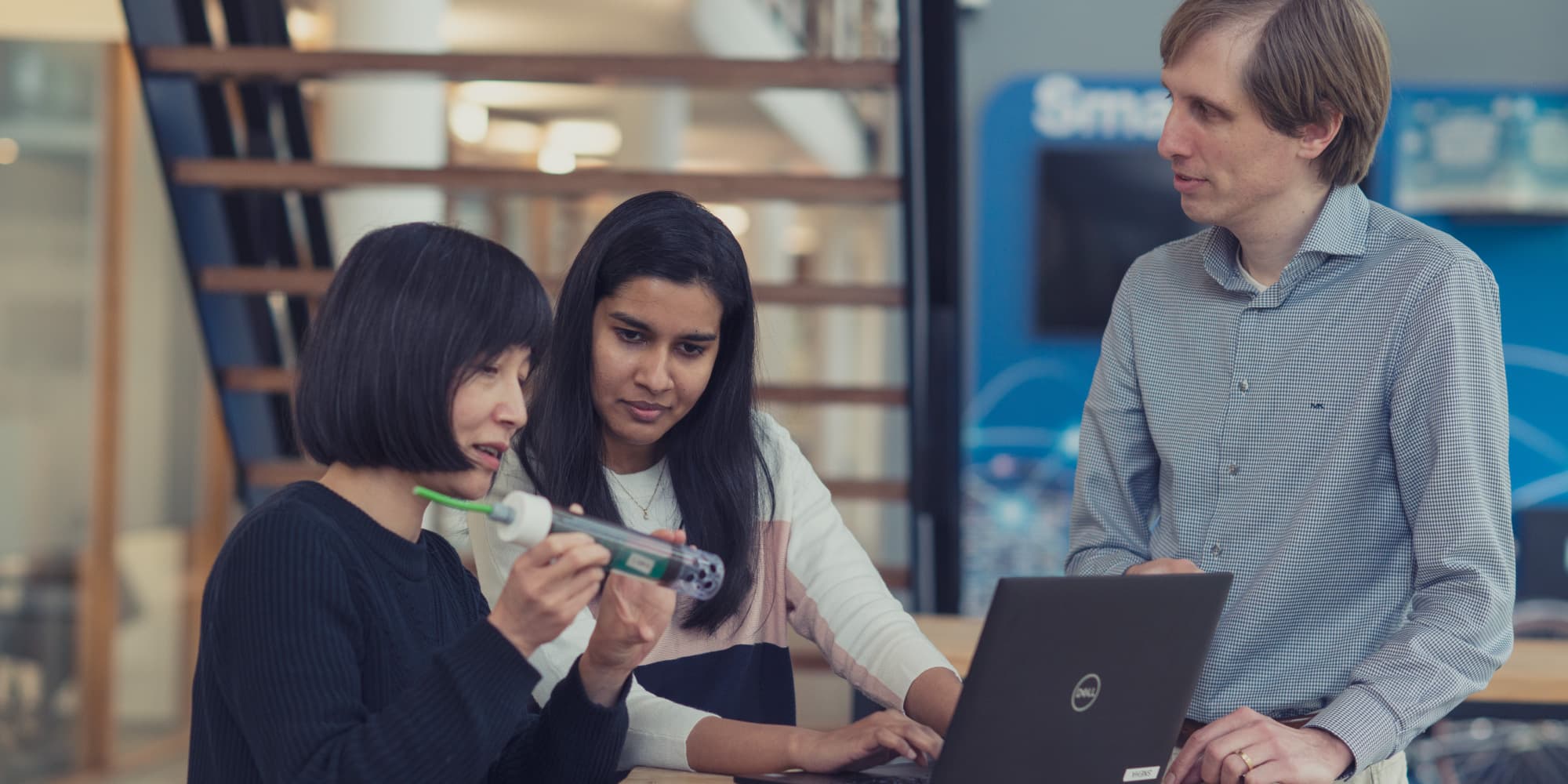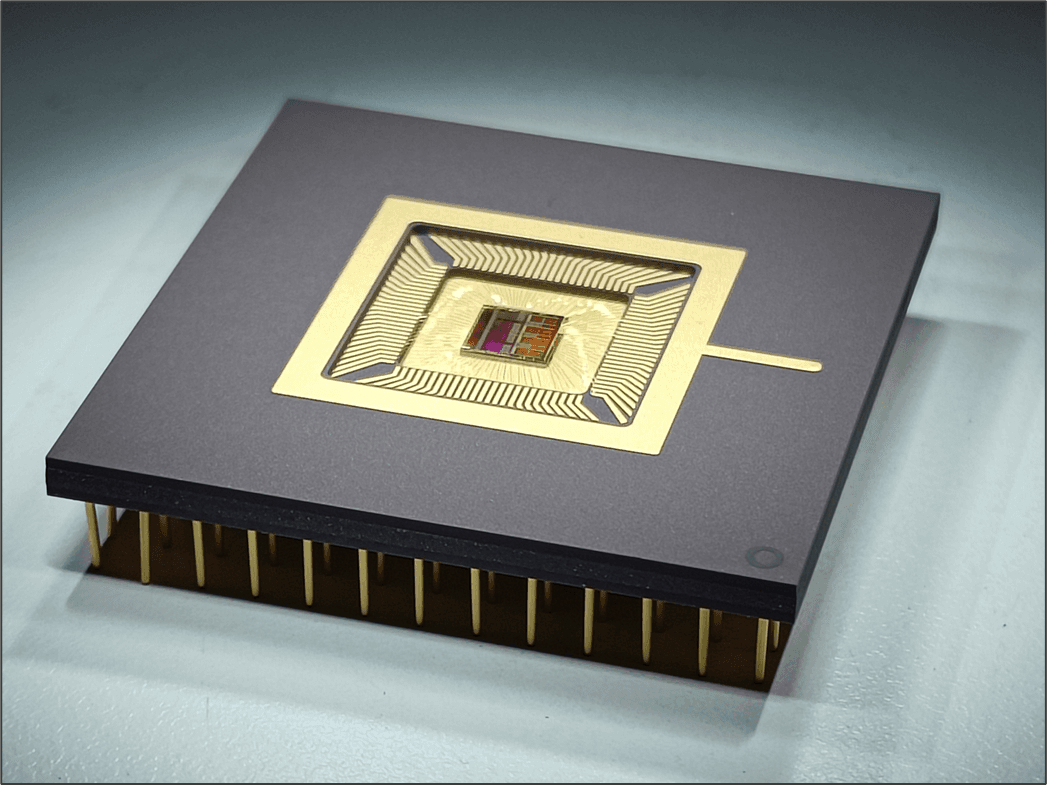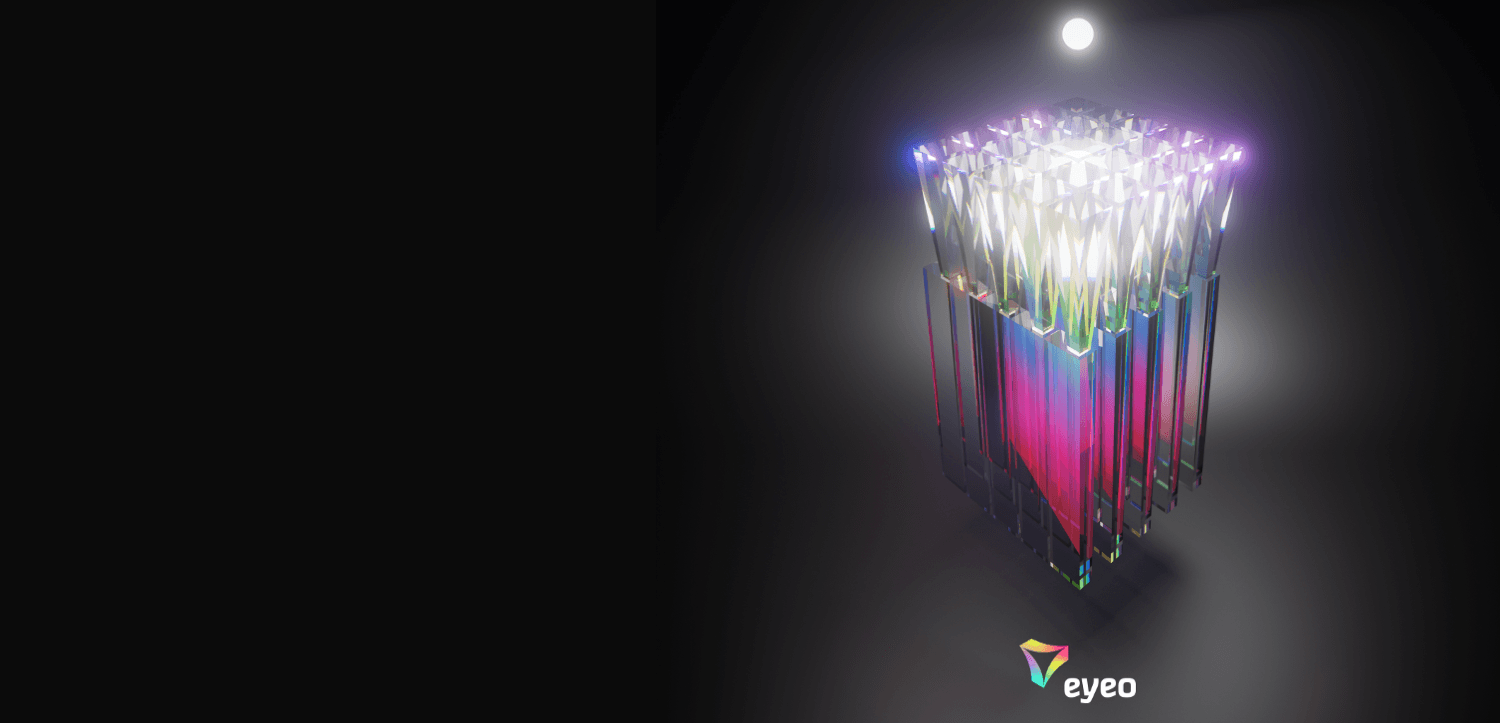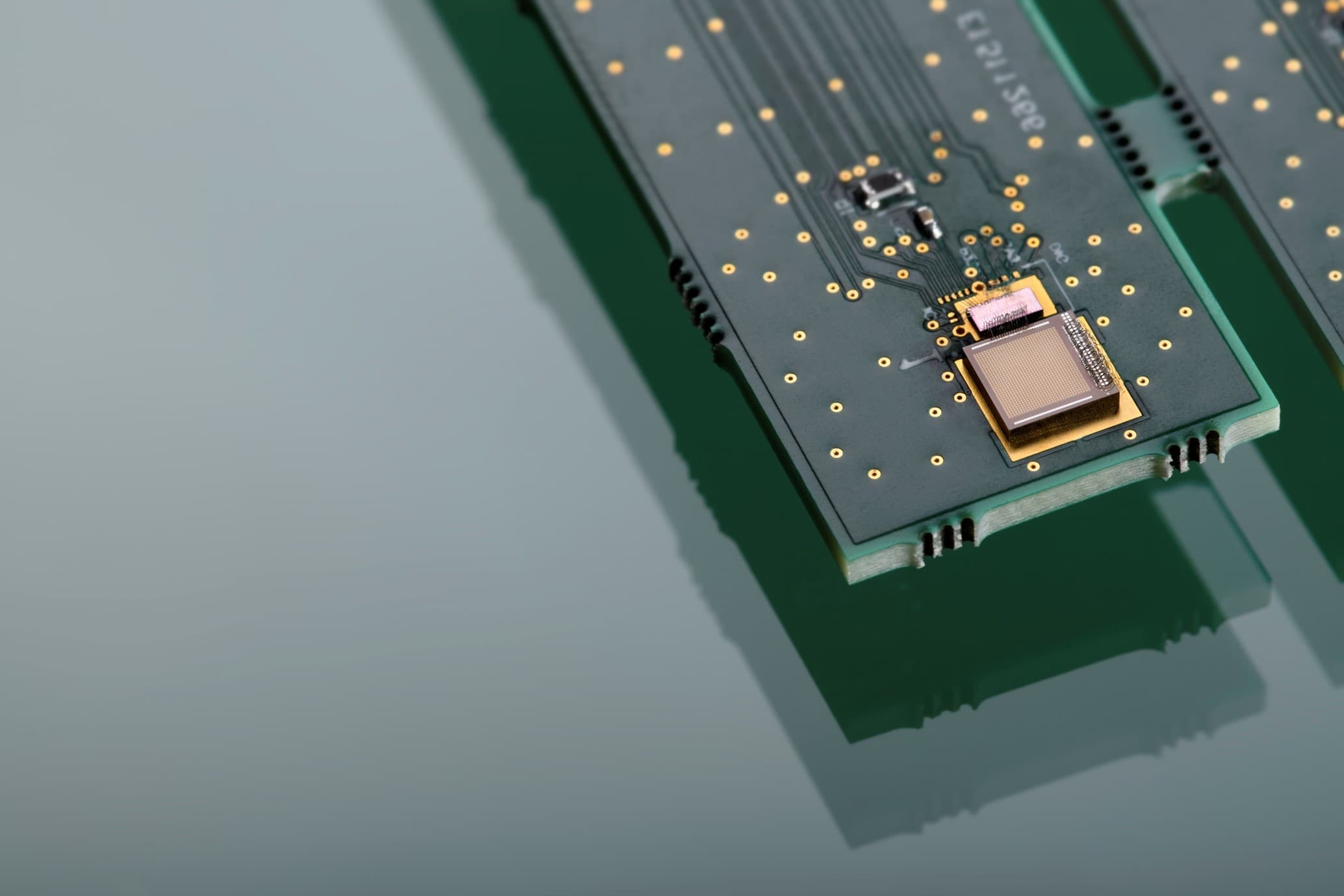English version
Sneha is a sensor researcher at imec, based at Holst Centre. She left her native India to pursue a master's in chemical engineering in the Netherlands. Following her studies, she joined imec in Eindhoven on a consultancy basis. After two years, she transferred to the research center full time. In the four years she worked at imec, she identified what she wanted to learn and went for it. She is especially proud of the growth she is achieving. “Every year was different. Each year represented another step forward in my career. Here I get the space to grow and learn from my colleagues and managers.”
The real world
“I started at imec as a sensor researcher and worked on sensors for lead detection in water. My work at that time consisted of experimenting in the lab and reading literature. After four years, I am still working on ion sensors (for aqueous media), but the great thing is that my work has moved from the lab to the real world.”
“At university you mainly do fundamental research, which is also great, but you don’t see what it means in the real world. After one year at imec, I noticed that the interactive side of the work appealed to me. Not just in the lab, but particularly outside it. For example, presenting my work to potential clients and talking to them about it. I get a sense of achievement from working with the customer to see what the technology can do. In my second year, I asked my manager if I could work on a customer project.”
“It’s really interesting to work on a specific solution. The customer tells you what they’re looking for. And then you get to work as a team. Your colleagues ask you for advice. And I, in turn, learn from them. I really like that interactive process. At imec you have so many different skills within a team. That's very inspiring. I work with hardware, software, and integration experts and I’m there for the sensor expertise. We bring all that knowledge together to find the ideal solution for the customer.”
More than just research
“After that customer project, I got the chance to lead my first project, for a foreign partner. In the beginning, I found it quite exciting. That particular partner had a reputation for being demanding when it came to deliverables and timelines. On top of that, the team consisted of professionals who had more experience than I did. But it was amazing. The project lasted two years and ultimately yielded a great end result: a miniaturized wireless pH sensor. The sensor was already available, but we made it smaller so that it could be used, for example, in the biomanufacturing industry.”
“Along the way, we didn't always get great results. In those situations, I had to bring the customer disappointing news. With the right guidance from my managers and senior colleagues, I learned that running a project isn’t just about the technical side. It’s also about effective communication and getting the team on the same page. And coordinating with them to find out how much time they have, because everyone has other projects to do.”
“In my work, effective communication and managing expectations are just as important as the research in the lab. You can do lots of groundbreaking research, but if it isn’t communicated in the right way, it isn’t much use.”
Eye-catching
Being from India and missing her family was especially difficult during her master’s studies. “But things gradually got better and better. I’m used to life here and have built my own little world with my boyfriend and friends. Of course, I miss my family, but it’s nice here and I feel independent. I also enjoy discovering Europe.”
Besides working and traveling in Europe, Sneha occasionally paints. She also likes to have everything neat and organized. “At home, but also at work. I have a painting hanging in my office. I love to make things more beautiful, even if it’s just with something small. For example, I enjoy creating presentations that also look attractive. Of course, it's about the technology, but if it’s eye-catching, it helps to make people listen more attentively.”
Her program manager Marcel Zevenbergen was given the same role at OnePlanet in Wageningen. This gave Sneha the opportunity to support him in his work at Holst Centre Eindhoven. “Learning the tricks and trade of program management,” as she calls it. “At imec, you really get the opportunity to shape your career. I thought that as a sensor researcher I would mostly be doing literature reviews and experimenting in the lab, but it’s so much more than that.”
Who: Sneha
From: India
What: Sensor researcher
At imec since: January 2018 at Holst Centre
Dutch version

Geen baanbrekend onderzoek zonder effectieve communicatie
Sneha is sensor researcher bij imec in Holst Centre. Ze verliet haar geboorteland India om haar master chemical engineering in Nederland te volgen. Na haar studie kwam ze op consultancy basis bij imec in Eindhoven terecht. Na twee jaar stapte ze volledig over naar het onderzoekscentrum. In de vier jaar dat ze bij imec werkt, ontdekte ze wat ze wilde leren en daarvoor te gaan. Ze is vooral trots op de groei die ze doormaakt. “Elk jaar had iets anders. Elk jaar was een stap verder in mijn carrière. Ik krijg hier de ruimte om te groeien en te leren van mijn collega’s en managers.”
De echte wereld
“Ik begon bij imec als een sensor researcher en werkte aan sensoren voor looddetectie in water. Mijn werk bestond toen uit experimenteren in het lab en literatuur lezen. Na vier jaar houd ik me nog steeds bezig met ionen sensoren (voor waterige media), maar het mooie is dat mijn werk zich van het lab naar de echte wereld heeft verplaatst.”
“Aan de universiteit doe je vooral fundamenteel onderzoek, wat ook gaaf is, maar je ziet niet wat het in de echt wereld betekent. Ik merkte na één jaar bij imec dat de interactieve kant van het werk me vooral aantrok. Niet alleen in het lab, maar vooral erbuiten. Bijvoorbeeld mijn werk aan mogelijke klanten presenteren en er met ze over praten. Ik krijg er energie van om met de klant te kijken wat de technologie kan betekenen. In mijn tweede jaar vroeg ik mijn manager of ik mocht werken aan een customer project.”
“Het is erg interessant om te werken aan een specifieke oplossing. De klant vertelt wat hij zoekt. En als team ga je aan de slag. Je collega’s vragen je om raad. En ik leer op mijn beurt weer van hen. Ik houd echt van dat interactieve proces. Bij imec heb je zoveel verschillende competenties binnen een team. Dat is heel inspirerend. Ik werk samen met hardware, software en integratie experts en ik ben er voor de sensor expertise. Al die kennis brengen we bij elkaar om de ideale oplossing voor de klant te vinden.”
Meer dan onderzoek alleen
“Na dat customer project kreeg ik de kans om mijn eerste project te leiden, voor een buitenlandse partner. In het begin vond ik dat best spannend. Die partner had de naam veeleisend te zijn als het gaat om deliverables en timelines. Daarnaast bestond het team uit professionals die meer ervaring hadden dan ik. Maar het was echt geweldig. Het project duurde twee jaar en uiteindelijk leverde het een mooi eindresultaat op: een minituralized wireless pH-sensor. De sensor was er al, maar we hebben deze kleiner gemaakt zodat hij toepasbaar is voor bijvoorbeeld de biomanufacturing industrie.”
“Gaandeweg waren er niet altijd meteen de goede resultaten. Dan moest ik de klant een moeilijke boodschap brengen. Met de juiste begeleiding van mijn managers en senior collega’s leerde ik dat een project leiden niet alleen gaat om het technische gedeelte. Maar dat het ook gaat om effectief communiceren en het team op één lijn brengen. En met hen afstemmen hoeveel tijd ze hebben, want iedereen heeft nog andere projecten te doen.”
“Effectieve communicatie en het managen van verwachtingen zijn in mijn werk net zo belangrijk als het onderzoek in het lab. Je kan nog zoveel baanbrekend onderzoek doen, maar als het niet op de juiste manier naar buiten komt, heb je er weinig aan.”
Verrassend
Dat ze uit India komt en haar familie moet missen, was vooral tijdens haar masterstudie moeilijk. “Maar het ging steeds beter en beter. Ik ben gewend aan het leven hier en heb mijn eigen kleine wereld opgebouwd samen met mijn vriend en vrienden. Natuurlijk mis ik mijn familie, maar het is hier fijn en ik voel me onafhankelijk. Ook vind ik het leuk om Europa te ontdekken.”
Naast werkt en reizen door Europa schildert Sneha af en toe. Ook houdt ze ervan alles netjes en georganiseerd te hebben. “Thuis maar ook op het werk. Dan hang ik, in mijn kantoor, een schilderij op. Ik houd ervan om de dingen met iets kleins mooier te maken. Zo maak ik graag presentaties die er ook grafisch mooi uitzien. Natuurlijk gaat het om de techniek, maar als het er verrassend uitziet, helpt dat om mensen aandachtiger te laten luisteren.”
Haar programma manager Marcel Zevenbergen kreeg diezelfde rol ook bij OnePlanet in Wageningen kreeg. Dat betekende voor Sneha de kans om hem bij zijn werk in Holst Centre Eindhoven te ondersteunen. “Learning the tricks and trade of program management”, zoals ze het zelf noemt. “Bij imec krijg je echt de mogelijkheid om jezelf te vormen. Ik dacht dat ik als sensor researcher vooral literatuuronderzoek zou doen en zou experimenteren in het lab, maar het is zoveel meer dan dat.”
Wie: Sneha
Van: India
Wat: Sensor researcher
Sinds: januari 2018 bij imec in Holst Centre

Sneha is a sensor researcher at imec, based at Holst Centre. She left her native India to pursue a master's in chemical engineering in the Netherlands. Following her studies, she joined imec in Eindhoven on a consultancy basis. After two years, she transferred to the research center full time.
Published on:
15 June 2022













